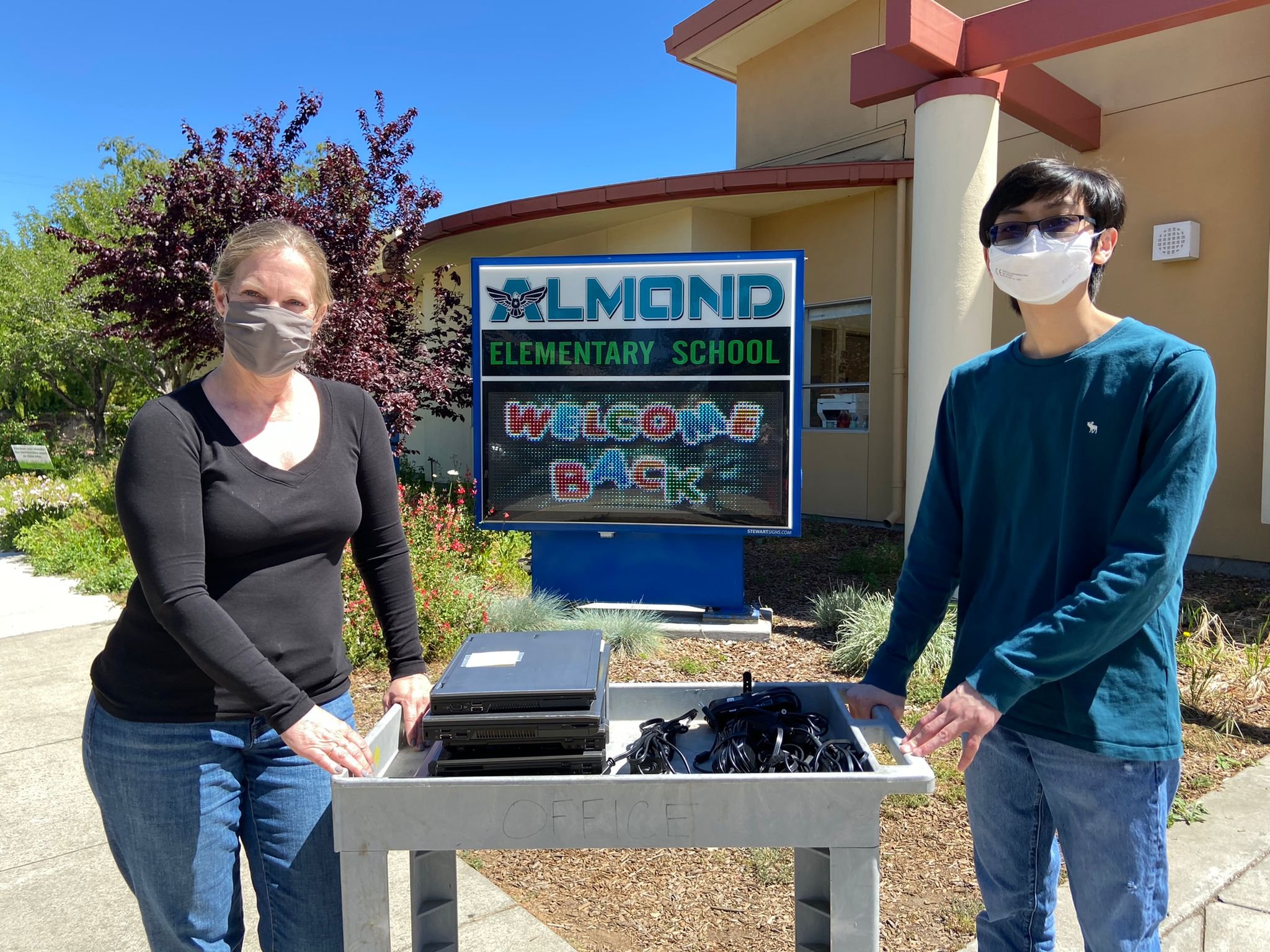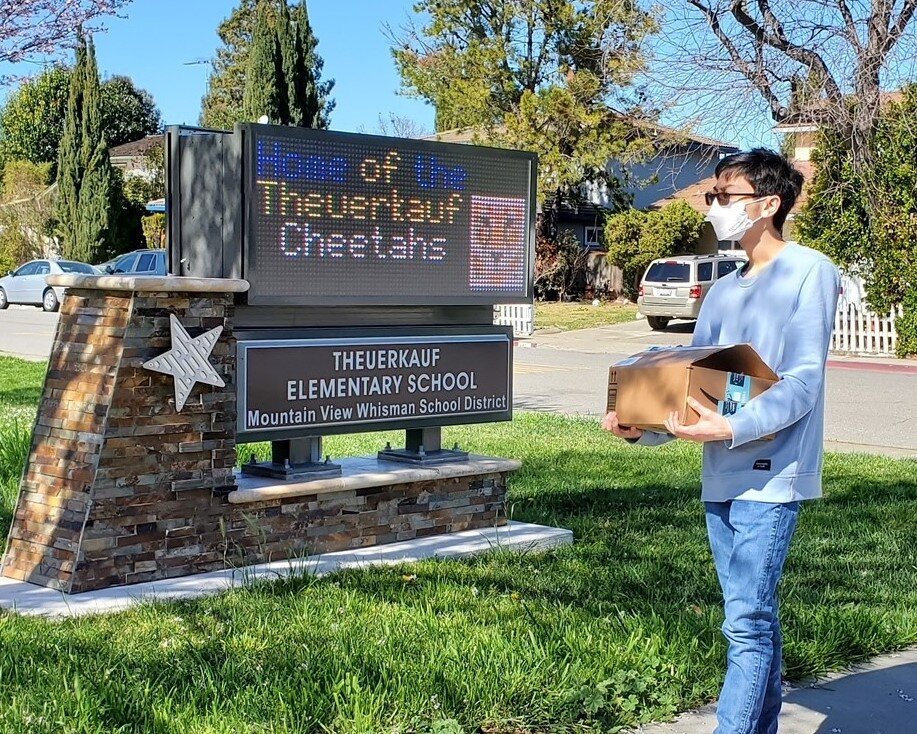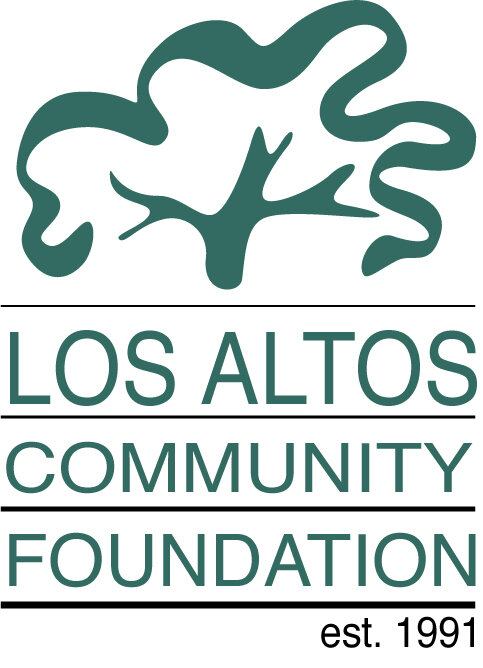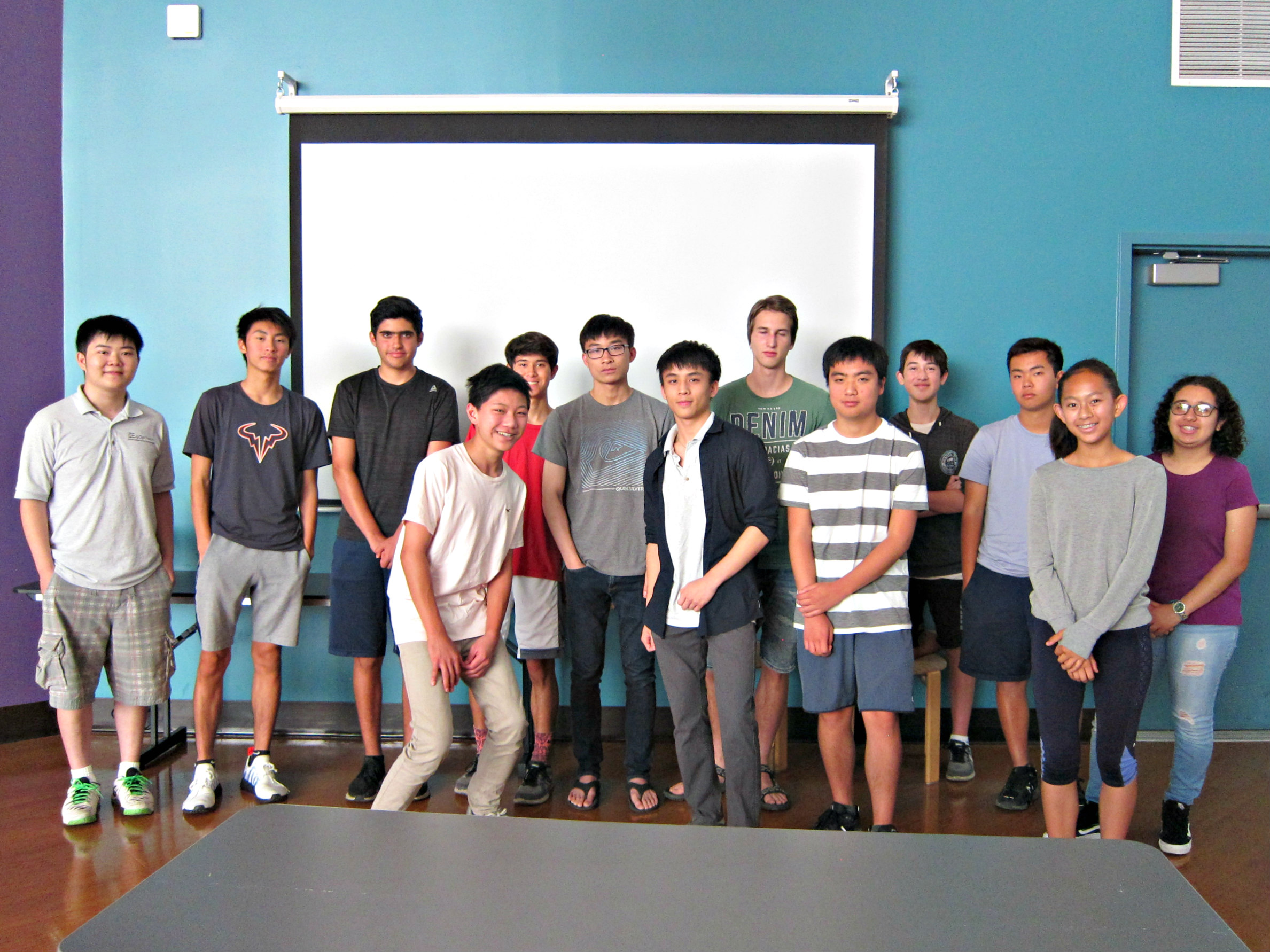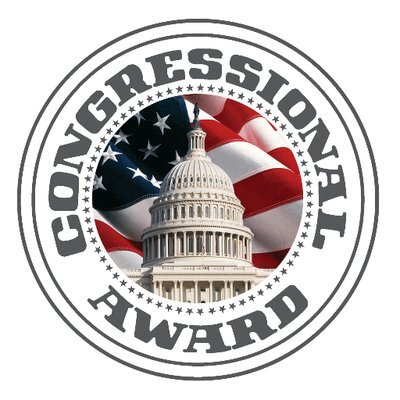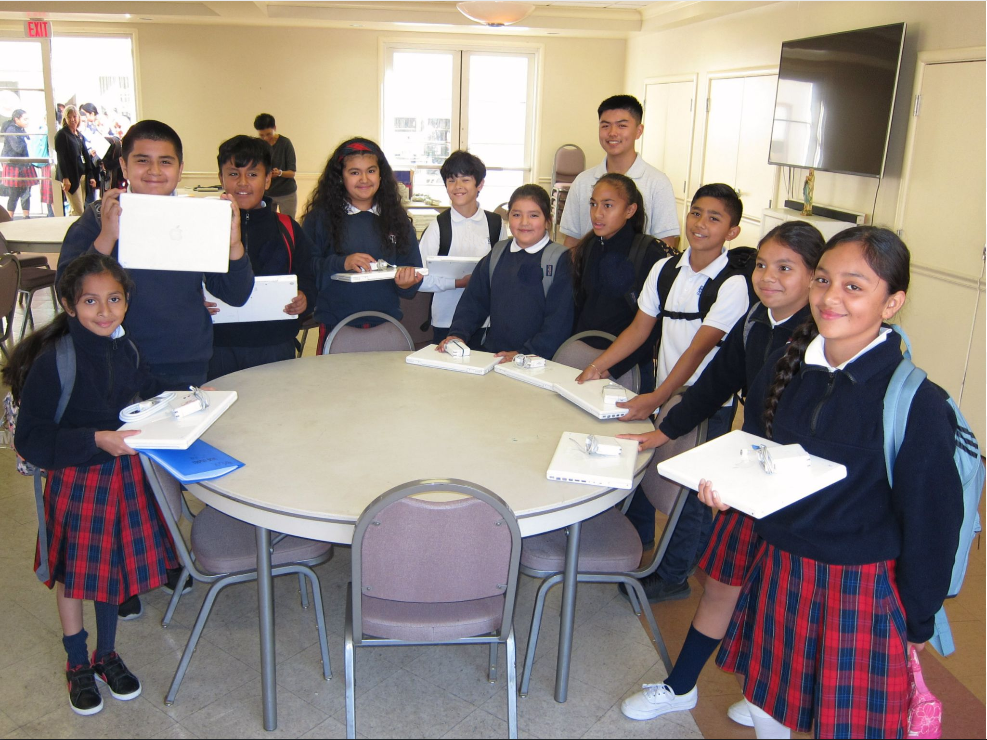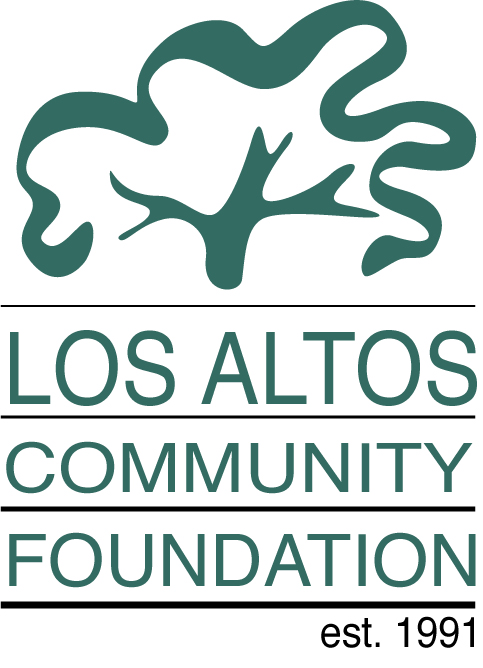Goreal starts off the panel by discussing the general impact of this pandemic on college applications. While schools are unable to provide in-person on-campus tours and open houses, there are still many virtual options and tools out there to provide the best experience possible for prospective students.
Another big change is that many schools, such as the UC system, have gone test-optional. However, Goreal states that “it’s highly recommended if you can take a test to take the test” as it is still a major deciding factor in a college application.
Q&A – Impact on college application plans
How do I visit schools to determine the right-fit when campuses are closed? What’s your advice on campus touring during the pandemic?
Goreal: It’s going to be a challenge – you can’t. What you can do is try and get a virtual tour. A lot of schools can provide virtual tours. If they don’t already have them on their website somebody is probably making one as we speak for those campuses. If you can’t access a virtual tour and official one, there’s always Google Maps; there’s always Apple Maps; they have street views and they’re very accurate. People can get to know an area based on those resources but you’re gonna have to do the research.
How does pass/fail impact transcripts and admission chances?
Goreal: We can’t really compare apples to oranges but we can compare apples to apples. I’m sure a lot of people will receive pass scores versus the amount of people that get fail scores and so compared to last year – where there’s A B C D F – it’ll be more difficult to discern who got an A, who got a B, and who got a C but within your application there’s teacher recommendations, counselor letters, letters of reference, and you have essays to write. They get to know who you are and they’ll know if you worked very hard and you’re probably a successful student in that subject then not. I don’t think it’s really a concern too much as long as you’re involved and other people can say “yes, I was involved in class and I was a successful, curious student”.
How do I reshape my narrative when test scores are optional and extracurricular activities are going virtual?
Goreal: Excellent question. It’s going right to the meat and bones of the issues. Your essays have to be extremely expressive of what you’ve done during your high school years and the time before your high school years, how you’ve prepared as an individual for college – not necessarily just professionally but internally – how you work with other people, how you overcome challenges, and how you’ll do in the future to connect with resources that the college has to offer you. So outside of test scores there’s a lot to say. Extracurricular activities – you should have plenty of background experience to express what you’ve done and how deep you’ve gone into certain activities and if not, you’re gonna have to start reaching out to people immediately and thinking about what we can do during this time to make an impact in other people’s lives and to do something that’s memorable that can be shared.
How do I craft my story and showcase my portfolio (internships, capstone projects, community service, extracurricular activities)?
Goreal: This is extremely important. When you apply they’re going to ask a lot of students if there are gonna be links to share. Some do some don’t –– you should have a LinkedIn page and you should be active on social media sharing the activities you’ve done and the projects you’ve worked on with other people and how they’ve impacted other people. If you have something to share that’s presentable, then you put it out in professional channels and connect with other people. They’ll be impressed with what you’ve done and they might engage with you in projects that they’d like to accomplish as well. How would I craft a story? Well, that’s a very complicated question – it relates to your greatest impact and what you plan on doing in the future. When you go into college they would like for you to have a plan and they would like for you to execute it well with the resources that they’ve shared and you’ve probably expressed how you would use those resources ideally working with certain professors or researching certain topics. They expect you to showcase – much like a job application – how can you fit in right away and succeed? And that’s what you would express to them in your essays.
Will COVID-19 help or hurt the class of 2021 college prospects?
Goreal: It’s difficult for everyone. You’re neither better off nor worse off and you want to give something your best effort – that’s the most important thing regardless of how it may or may not have affected you. You want to be in control of what you can do and that’s putting in your best effort on your essays, your application process, and what you present to those schools.
As for college tours, Goreal suggests that it’ll be difficult to tour colleges if students don’t know what they’re aiming for. College prospects should start looking into their safety, target, and reach schools as well as figuring out which programs, clubs, or activities they want to be involved in. Goreal discusses anecdotes regarding his own journey as a high school student looking into colleges and talks about how he first started out Googling the surrounding area of colleges he was interested in. This is really useful especially if the location and environment of the schools are really important to the student. Goreal also emphasizes contacting students or alumni because they often have the most experience with the school and could provide good insight. Researching and reaching out to professors for certain majors is also a very useful approach to finding out more about certain programs and courses offered at colleges.
Because of the new pass/fail grading system introduced during the pandemic, Goreal states that there will be a lot of grade inflation in regards to most people getting a higher passing grade and less people getting a failing grade. Goreal says that the application process is when students must show who they really are and “unclump” themselves from those who got pass/fail grades in order to truly stand out. “The things that stand out are the classes you take, the initiative you take to educate yourself outside of school, and your activities outside of school,” Goreal states.
“As I always say, if it’s optional, it’s actually required. If you can do it, do it.” Goreal recommends that students should definitely take standardized tests if they’re able to even if schools are test-optional. According to the article “University of California system can no longer use SAT, ACT test results in admissions, judge rules” written by Alexa Mae Asperin on KRON4, the University of California (UC) school system will no longer be considering SAT and ACT test scores for the undergraduate admissions process. This is a big change for many students and may come as a surprise. However, essays are still a very critical part of the admissions process.
Crafting your story
Colleges are looking for certain traits in a potential student. By establishing an identity, building a narrative, and showcasing those skills in capstone projects, internships, extracurriculars, or community service, applicants are able to strengthen their application and show colleges who they are. Make sure to add in components regarding innovation, leadership, community involvement, teamwork, collaboration, problem solving, soft skills, and more.
When writing essays, it’s important to take note of certain requirements or limits based on each school’s application. For example, the UCs require 4 350-word essays, the Common Application has 1 650-word essay, and the majority of competitive schools require 1-3 essays with 100-700 words each. In general, students should expect 5-25+ prompts to answer for applications. Goreal’s advice for students preparing to write the UC essays is to have them first start out writing 1,000 words and then showing them how those 1,000 words can be rewritten into something shorter.
What colleges love to hear
“The level and depth of activity is the most important factor,” Goreal says. He suggests that students should showcase how involved they were in a certain club or activity and what their role was in it. Many students join too many clubs and are not specialized in a certain field they want to go in. Successful applicants usually commit to a handful of organizations, volunteer heavily for a few select causes, and truly hone in to specialize in a certain field of interest. Goreal also recommends having a blog in order to showcase any projects or levels of activity. By doing so, individuals are able to share what they’re involved in and accomplishments they’ve achieved.
Writing the essays
For UC essays, Goreal recommends choosing the prompts that relate and represent the individual’s story the best. In general, the topics that should be covered in application essays include experiences in A, B, and C, what to be pursued in college and why, what the individual does to help others, what a problem is that the individual solved, and how the individual will continue to grow and learn. However, don’t recycle the same/similar subject matter in the prompts as individuals need to have multiple activities that showcase passions in order to stand out.
During the current pandemic, a lot of students may write in their essays about how it has affected them. If an individual chooses to do that, Goreal advises to stand out. He advises against being negative and instead to focus on the positive effects of the pandemic. Don’t focus on the negatives, although mentioning them is okay. Goreal says that “you have to show how you’ve made the effort, you’ve been dedicated, you’ve persevered through the challenges, and you’ve wanted to see through your journey.”
An acronym Goreal came up with for creating a narrative is VIVID.
V: “vivid” – makes the reader sense a student’s illustration.
I: “interesting” – keeps the reader interested in the story.
V: “very”.
I: “informative” – 650 words means 650 words, inform as much as possible.
D: “descriptions” – describe all plans, emotions, results, and experiences.
The details that matter
Some important details that could really enhance an application process include having a LinkedIn page and being friends with teachers. Goreal strongly recommends setting up a LinkedIn page in order to connect with professionals and others in the field of interest in order to collaborate on projects or gain insight and advice. Becoming friends with teachers is also something that should be considered. By doing so, positive experiences can be gained and they’ll have more to write about on letters of recommendation.
As for when to apply to certain schools, there are 3 options: early decision, early action, and regular decision. Early decision is binding and students can only apply for 1 school with this while early action is not binding and students can apply for many schools with this. Goreal advocates for applying as early as possible.
Speaker Q&A
Most colleges will be test-optional for 2021 applicants. How heavily will these colleges weight test scores in their admissions process, as compared to before?
Goreal: Very heavily. If you have a test score to submit, hopefully it’s good. If it’s not, you can work on improving it. It is very heavily weighted – it’s a parameter that they can judge you by.
Some colleges are test-blind for 2021 applicants because of COVID. Is it possible to still communicate test scores to these colleges?
Goreal: No – that would be very frowned upon. Don’t do that – not even in your essays – because it’s like what are you trying to get across? They don’t want to see your test scores, they want to judge everybody fairly based on these other parameters. That will not represent your character well and it misrepresents your decision making.
Will spring 2020 pass/fail grades be weighted any differently vs a standard letter grading scale as used in other semesters?
Goreal: Absolutely – why not? It’s only a pass. It’s not an A, B, or C. But, how do you compare to other people? If they also got passes, don’t worry about it. It’s your trajectory that matters. All of your grades in whole, not just this moment right now.
What common mistakes do you see kids or parents making as high schoolers prepare for the college admissions process?
Goreal: They’re not heavily involved in things, they’re taking things easy, they think just getting good grades is going to get them to the colleges that they hear about and want to go to. That’s not going happen – it’s super competitive. Even the students that I work with that are heavily involved and really putting in an effort because what else are you going to do? Waste your time? Do something! That’s the mistake.
What is the difference between getting a CS degree in a liberal arts school versus a more STEM-focused school?
Goreal: Fantastic. So for any degree major, an arts-based degree is going to go into the theories more so than the practical applications and the actual projects that you have to work on. There’s gonna be interdisciplinary work that you have to do. So for a STEM-focused school for a Bachelor of Science degree, rather than a Bachelor of Arts degree, you’re gonna be expected to use your knowledge in physics and mathematics and history, and other sciences and relate it to your subject matter that you’re majoring in. So be prepared to bring all of the goods. But for liberal arts, you’re not going to be as heavily involved as a science school but you will be studying a lot of the theory and researching a lot most likely.
I was wondering if I could please get your opinion on the current status of the SAT/SAT subject tests. Do you think College Board will provide an online alternative?
Goreal: I think currently they’re not providing anything for subject tests. They are planning to provide in-person testing for the SAT. The end of August and every month through the end of the year will be limiting testing sites. It’s probably going to be challenging. If you can, go for it. Subject tests – I don’t think they’re gonna offer online, digital versions because it’s so easy to cheat like that. They don’t want cheaters to get high scores. It makes the hard workers get low scores.
How many colleges would you recommend applying to this year given the uncertainty of COVID?
Goreal: I always tell students to apply to as many colleges as they can apply to. Of course that’s what I do – I help students apply to colleges so ideally I’m helping you apply to as many schools as you would hope to apply to. I have students that make lists of 20 schools. In the end they end up applying to 6-12 of those schools and that’s grouping the UCs all as one. So 6-12 is a pretty fair number. 12 is very high. 6 is pretty good. 8 is a lot and good.
Do you believe admissions will be made more difficult this year due to COVID deferrals?
Goreal: I think actually for a lot of the academic and studious students, it’ll be easier to get into the schools that you’ve wanted to get into because a lot of activities are being cut and those activities require high specialization like football for example. It takes a lot of work to compete at the highest levels and if they’re not providing scholarships to a lot of students, at certain times, it does open up places in colleges where they will accept students that will be studying either online or locally in what the case may be. It depends on what group you’re in but overall, if you’ve done a good job and you can show that, then they’ll want you, but if you can’t show that, they probably won’t want you regardless of the situation.
Student panel Q&A
The student panel consists of:




